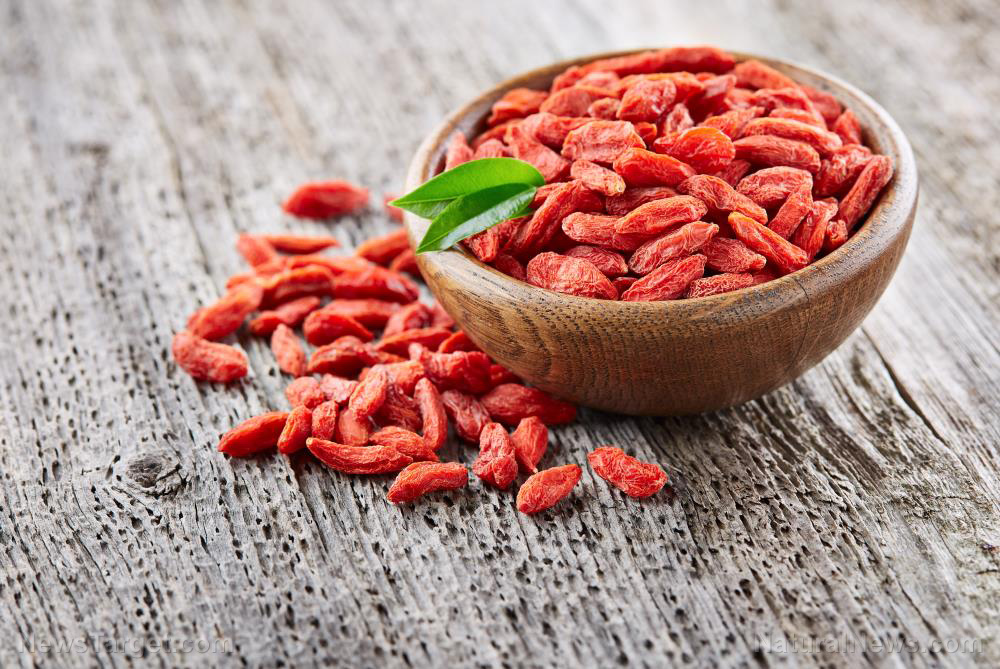 Parler
Parler Gab
Gab
- A recent study found that taking 3 grams of spirulina daily for at least 12 weeks significantly lowers blood pressure — potentially reducing cardiovascular risks.
- Spirulina’s phycocyanin, chlorophyll, and antioxidants support immune function, detoxification, and inflammation control — key factors in heart health.
- Unlike trendy spirulina-laced drinks, whole algae supplements deliver stronger benefits than extracts alone.
- Experts caution against spirulina for pregnant women, those on blood thinners, or people with autoimmune conditions due to possible heavy metal contamination or interactions.
- This affordable, nutrient-dense superfood could become a natural complement to traditional hypertension treatments.
Spirulina: A nutritional titan hidden in algae
Spirulina isn’t new — Aztecs harvested it from Lake Texcoco, and African communities have long relied on it as a survival food. But modern science is only now unpacking why this algae thrives as a superfood. Bursting with 60-70 percent protein, iron, B vitamins and pigments like phycocyanin, spirulina works like a multi-tool for wellness. The blue in its hue comes from phycocyanin, an anti-inflammatory, immune-boosting protein, while chlorophyll (its green sidekick) aids detox and gut health. The latest meta-analysis, published in the Journal of Human Nutrition and Dietetics, reviewed 29 trials involving over 1,500 participants. Researchers discovered that spirulina reduced systolic blood pressure (SBP) by 5.28 mmHg — comparable to some medications — and diastolic pressure by 3.56 mmHg. For context: Every 5 mmHg drop in SBP slashes stroke risk by 14 percent and heart disease by nine percent. That makes spirulina’s effect anything but trivial. Another study in Phytotherapy Research found that spirulina supplementation decreased blood pressure in adults in clinical settings.Spirulina benefits these areas
Spirulina is a type of blue-green algae that has been used for centuries as a source of nutrition. It is rich in protein, vitamins and minerals, and has been shown to have numerous health benefits. Here are some of the top health benefits of spirulina: 1. Immune system support: Spirulina is a natural immune booster and can help to enhance the body's ability to fight off infections and diseases. 2. Antioxidant properties: Spirulina is high in antioxidants, which can help to protect the body against oxidative stress and inflammation. 3. Improved heart health: Spirulina has been shown to help lower cholesterol levels and improve blood pressure, which can reduce the risk of heart disease. 4. Weight loss and metabolism boost: Spirulina can help to increase energy levels and metabolism, making it a potential aid for weight loss. 5. Detoxification: Spirulina can help to support the liver and digestive system, and may also help to remove heavy metals and other toxins from the body. In addition to these benefits, spirulina may also help to support healthy skin, improve joint health, and reduce allergy symptoms. It is thought to be particularly beneficial for people who have a high risk of developing chronic diseases, such as those with pre-diabetes or metabolic syndrome.A healthy bacteria with vast benefits
Spirulina is also a type of cyanobacteria, which is rich in various phytonutrients, including phycocyanins, cryptoxanthins, zeaxanthins, and C-phycocyanin. These phytonutrients contribute to the numerous health benefits attributed to spirulina consumption. Phycocyanins: Phycocyanins are water-soluble blue-green pigments found in spirulina that have been shown to possess antioxidant and anti-inflammatory properties. They help protect cells from oxidative damage and reduce inflammation, which can be beneficial in managing conditions such as cardiovascular disease, diabetes, and cancer. Additionally, phycocyanins aid in regulating blood sugar levels by inhibiting glycation reactions, thus contributing to better metabolic control. Cryptoxanthins: Carotenoid compounds known as cryptoxanthins are present in spirulina and offer several health advantages. They function as powerful antioxidants, helping to reduce oxidative stress and inflammation within the body. Furthermore, cryptoxanthins play a crucial role in maintaining eye health by supporting macular pigment density, thereby potentially reducing the risk of age-related macular degeneration and cataracts. Their antioxidant properties also contribute to enhanced immune system function and improved overall vitality. Zeaxanthins: Zeaxanthins are another group of carotenoids found in spirulina that provide significant health benefits. They act as antioxidants, protecting against oxidative damage and inflammation, particularly in the eyes where they help maintain visual acuity and reduce the risk of developing age-related eye diseases like macular degeneration and cataracts. By contributing to better eye health, zeaxanthins support overall well-being and quality of vision. C-Phycocyanin: Known for its blue-green color, C-phycocyanin is yet another phytonutrient found in spirulina. It demonstrates potent antioxidant and anti-inflammatory activities, making it effective in combating oxidative stress and reducing inflammation throughout the body. This capability translates into potential benefits for managing various chronic diseases characterized by elevated inflammation, such as cardiovascular disease, diabetes, and neurological disorders. Moreover, C-phycocyanin enhances immune function, aiding in the body's ability to fight off infections and maintain overall health.Fight back against hypertension
Hypertension rarely shouts its presence — half of sufferers don’t realize they have it until a crisis strikes. While lifestyle shifts remain crucial, spirulina offers a low-cost adjunct therapy. As lead researchers posit, microalgae could "complement pharmacological treatments" — giving hope to millions seeking natural, holistic options. Sources include: Dailymail.co.uk OnlineLibrary.wiley.com Pubmed.govSea of Galilee turns blood-red, sparking apocalyptic fears – but scientists blame algae
By Ava Grace // Share
Researchers discover major flaw in routine blood pressure readings, leading to misdiagnoses
By Lance D Johnson // Share
From ancient elixir to modern superfood: The timeless power of Goji Berries
By Ava Grace // Share
The War on Light: How Governments and Big Pharma Keep You Sick By Blocking Healing Photons
By Mike Adams // Share
By Finn Heartley // Share
Most comprehensive study to date: Omega-3 reduces heart risks
By News Editors // Share
Governments continue to obscure COVID-19 vaccine data amid rising concerns over excess deaths
By patricklewis // Share
Tech giant Microsoft backs EXTINCTION with its support of carbon capture programs
By ramontomeydw // Share
Germany to resume arms exports to Israel despite repeated ceasefire violations
By isabelle // Share










